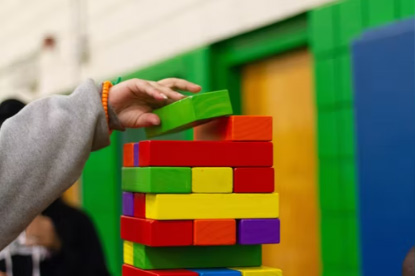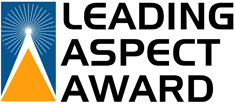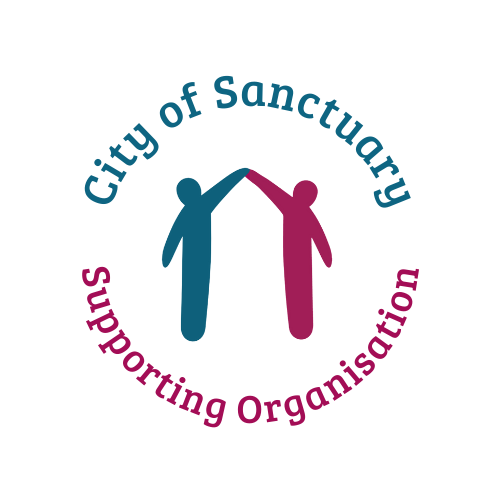Child Development:
Subject Information Overview
Below is a visual overview of the content available on this page. Click the appropriate title to view the relevant section
Curriculum
Area Staff Curriculum
InformationCurriculum
OverviewExam information for GCSE
qualifications in this Subject AreaKnowledge
Organisers
Curriculum Area Staff
|
Mrs Jennie White Kate Holmes |
Beth Francis |
Should you require more information about this subject area please contact:
Name: Mrs J White
Position: Child Development Lead Teacher
Email: jwh@selbyhigh.co.uk
Curriculum informATION
The child development curriculum is designed to equip students with the knowledge and practical experience to apply the principles of child development in a wider setting, be this life outside of Selby High School or when undertaking further study in the area and/or becoming a professional in the childcare sector. This course is designed so that students can go straight into Childcare at level 3 if they should wish to. Throughout the course students will have the opportunity to acquire and hone skills such as creativity, innovation, analysis and critical assessment of situations and ideas. All of these skills are transferable to wider contexts and are considered life-long skills for learners.
The course is 40% examined assessment and 60% coursework. The coursework consists of research into suitable equipment to use in a nursery, planning and design of a nursery setting, research into feeding options for different ages of children and a practical task linked to the feeding option research.
The second piece of coursework is based around how a child develops and the importance of play activities. Students will research and plan a task for a child in a specific age range, then evaluate the task. Through Child Development, students will learn about the following key areas
- Health and wellbeing - This covers the key factors that impact on becoming pregnant, having a healthy pregnancy and creating a safe and healthy environment for the baby when it is born.
- Creating a safe environment - This will cover the importance of safety in a childcare setting, and how they provide a nurturing environment for babies and young children. Students will learn how to create a safe environment for children from birth to 5 years and investigate equipment which is both suitable and safe.
- Nutritional needs of children from 1 to 5 years - This covers the dietary requirements of children and how these are met through the feeding of a milk diet, through the weaning process and to a balanced children's diet.
- Understanding the development of a child - In this unit we cover the different areas of child development, physical, intellectual and social.
We look at developmental milestones and how an individual child can be compared to expected ‘norms’ to monitor their progress. We look at the importance of play for healthy development and how activities can be tailored to meet the needs of an individual.
Curriculum Overview
Below is a summary overview of the topics and their content that will be studied in each term by each year group. For more information about each topic, get your child to visit learning journeys and resources on the school online learning platform - Ready Steady Learn.
| Year Group | Term 1 | Term 2 | Term 3 |
| 10 |
|
|
|
| Assessment details |
Coursework RO58 |
End of topic tests |
Coursework RO58
|
| 11 |
|
|
|
| Assessment details |
End of topic tests RO59 coursework |
January mocks |
June exam |
KNOWLEDGE ORGANISERS
A Knowledge Rich Curriculum at Selby High School
Research around memory suggests that if knowledge is studied once and not revisited or revised, it is not stored in the long-term memory. This means that after one lesson, or revising for one test, the knowledge will not be retained unless it is studied again. It won’t be recalled unless it is revisited frequently, which will embed it in the long term memory. In the long term this makes recall far easier. As part of home learning, students should be revising what they have been taught recently but also content they were taught previously. Therefore as part of our strategy to embed learning over time we have started to develop knowledge organisers across all year groups and curriculum areas. These will provide key content and knowledge allowing students to pre-learn and re-learn, a vital part of processing all the information required to be successful in the new style GCSE’s.
Instructions for using your knowledge organisers
KS3 = Years 7, 8 & 9
KS4 = Years 10 & 11
Below are the knowledge organisers for each topic in this subject. These knowledge organisers will become embedded in the Learning Journeys for each topic as they are created on Ready Steady Learn.
Exam information for GSCE qualifications in this subject area
Click each link below to view the full specification:
OCR level 1/2 Cambridge National certificate in Child Development (J809 for study in y10)
- RO57: Health and well-being for child development
- RO58: Create a safe environment and understand the nutritional needs of children from birth to 5 years
- RO59: Understand the development of a child from birth to 5 years (J818 for students in y11)

















